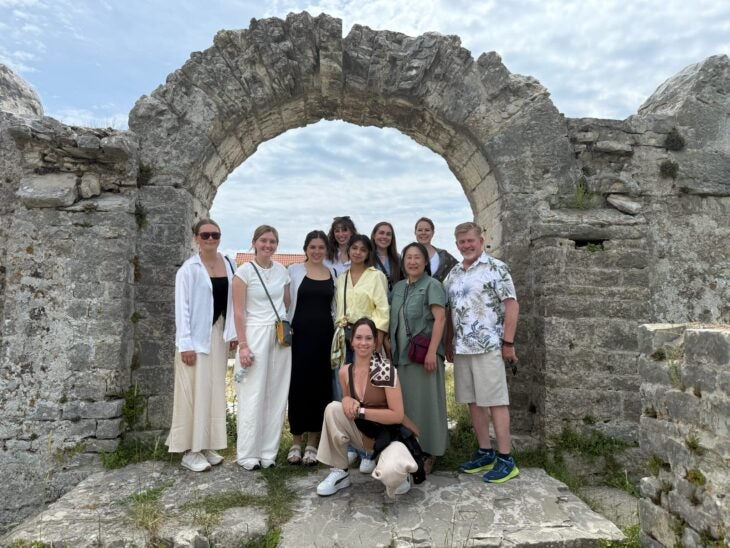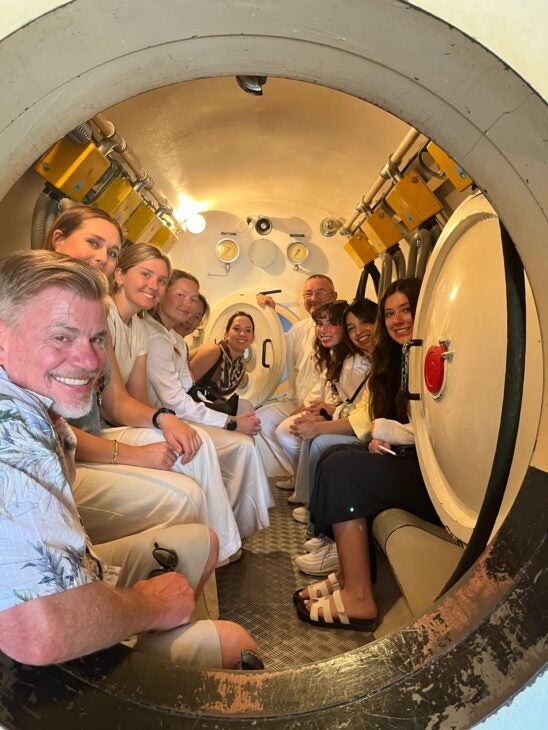
In May, Radiologic Sciences Associate Professor, Leslie Kendrick, Clinical Assistant Professor, Anastasia Tracy, and School of Allied Health Sciences Director, Dr. Bob Wood traveled with College of Health Sciences students as part of the AHS 400 Comparative Health Systems course. They embarked on a unique educational journey, comparing the nuances of the U.S. healthcare system with that of Croatia. This in-person experience, designed to cultivate future healthcare leaders, provided an unparalleled look at how different societies approach health and wellness.
A cornerstone of the course is the innovative “windshield tour.” Prior to their international travel, students conducted a meticulous five-mile radius exploration around an unspecified location in Boise. This observational exercise required them to examine a wide array of factors influencing individual health, extending far beyond traditional clinics and hospitals. Observations included everything from air quality, housing conditions, and water sources, to the cleanliness of the area, food accessibility, transportation options, employment opportunities, security, and even street lighting.
The “windshield tour” is about understanding the broader determinants of health in a community. It highlights how environmental, social, and economic factors are inextricably linked to an individual’s well-being.
This same comprehensive “windshield tour” was then repeated during their time in Croatia. This direct, side-by-side comparison allowed students to consider an individual with a specific ailment or disability of their choice, contrasting the support systems and challenges present in both environments.

Beyond the observational tours, the Croatian leg of the trip immersed students in the country’s healthcare infrastructure. They visited the University of Split, School of Medicine campus. During their time on campus they toured various healthcare facilities, gaining first hand insights into clinical practices, and patient access. The time spent on campus also offered a valuable perspective on healthcare educational opportunities available to students in the region.
The culmination of this immersive experience is a reflective paper where students compare their observations and experiences, identifying both the positive attributes and challenges within each healthcare system. The overarching goal is for these students to synthesize their learning and apply it in their future healthcare employment, enabling them to implement policies or champion changes that ultimately improve patient experiences and outcomes.
By directly engaging with diverse healthcare landscapes, COHS students are not just learning about comparative health systems; they are actively preparing to become influential advocates for improved health outcomes, both locally and globally.